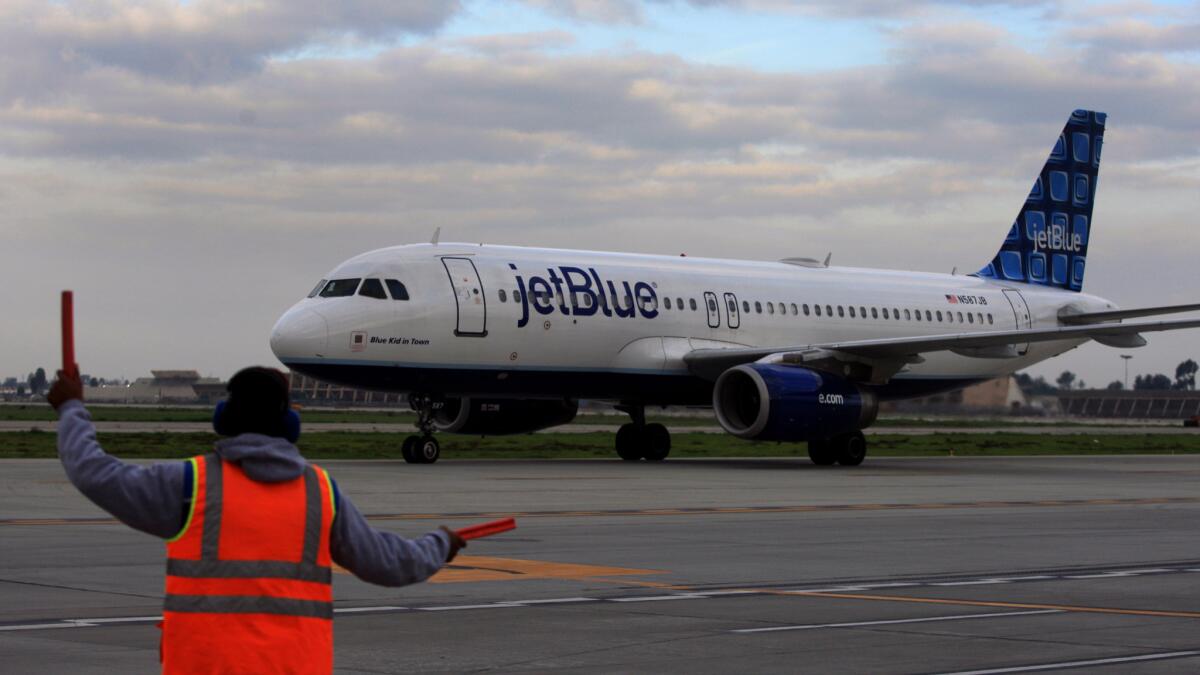Long Beach Airport can serve international flights, feasibility study says

- Share via
A long-awaited study on the feasibility of allowing international flights in and out of Long Beach Airport concluded that such flights would not exceed local noise restrictions and would generate millions of dollars in spending by international travelers.
The study by Jacobs Engineering, released this week, found that new international flights could replace existing domestic flights without exceeding current noise limits. But to screen international passengers and luggage, the airport must build a federal inspection facility at a cost of $17.3 million to $21.6 million, the report said.
The cost of the new screening facility could be paid for mostly with passenger fees and charges to airlines that would fly to international destinations, the report found.
JetBlue, the biggest carrier at Long Beach, called for the study. The fee for passengers could be as high as $13 per flight but could drop to less than $4 after a few years.
Some Long Beach residents who oppose expanding the airport to international flights worried that the change would generate more noise, which could hurt the reading scores of nearby schoolchildren, and would invite drug cartels to the beach-side community.
But the study shot down such fears.
“The threats and relative risks would remain basically the same as these threats are already present in the area,” the report said.
As a benefit, international travelers flying to Long Beach could spend $57 million to $104 million in the first five years after international flights begin service, the report said. The new international screening facility could also generate 350 new jobs.
The report will be presented to the public for the first time at 6:30 p.m. Oct. 20 at the Long Beach Gas & Oil Auditorium, 2400 East Spring St.
To read more about the travel and tourism industries, follow @hugomartin on Twitter.
More to Read
Inside the business of entertainment
The Wide Shot brings you news, analysis and insights on everything from streaming wars to production — and what it all means for the future.
You may occasionally receive promotional content from the Los Angeles Times.











